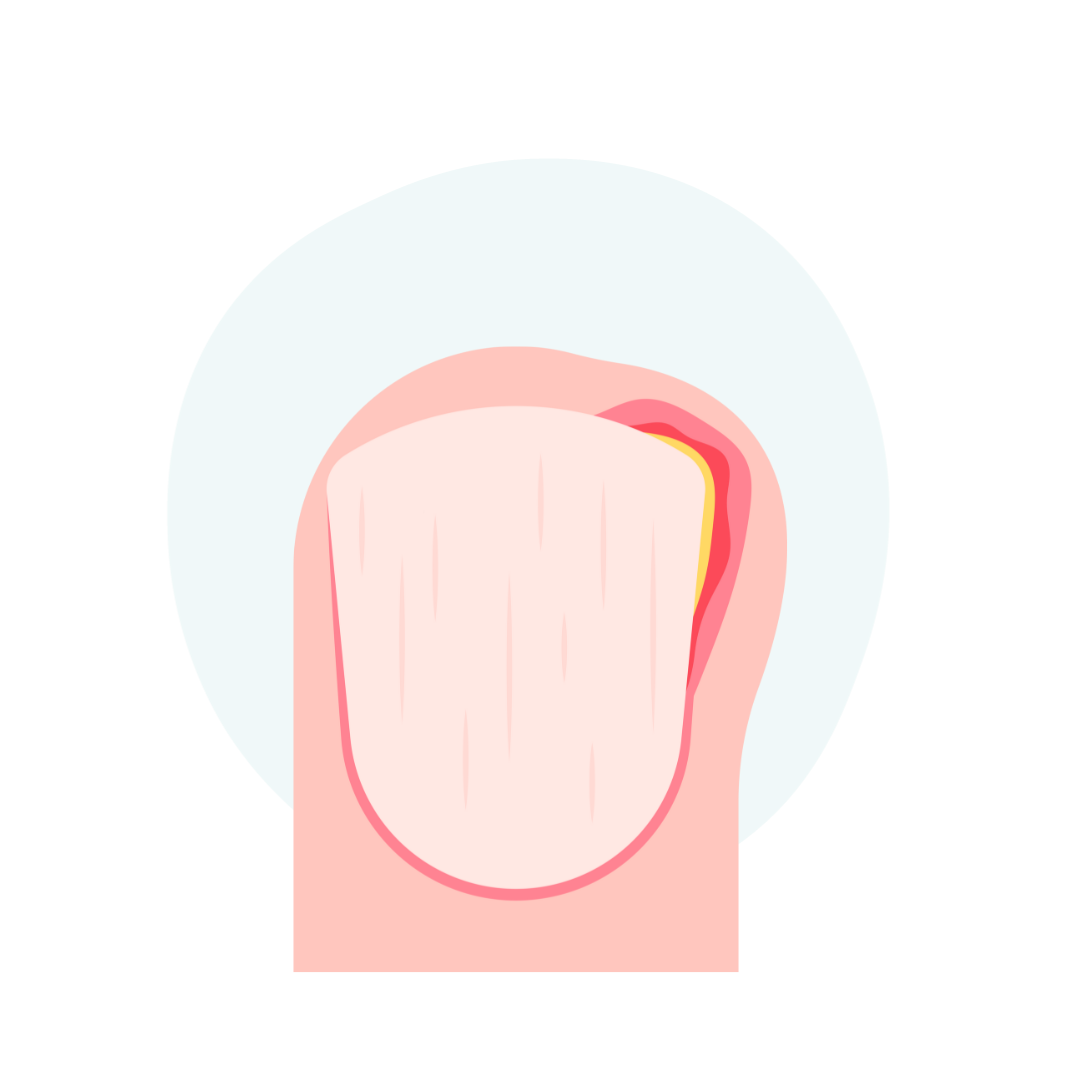
Ingrown Toenail
Are you experiencing pain, tenderness, or redness in your toes? It could be a sign of an ingrown toenail, a common condition that affects millions of people worldwide. But don't ignore it! Timely intervention is crucial to prevent further complications and ensure a quick recovery. That's why it's essential to seek a foot doctor for ingrown toenails.
A foot doctor, also known as a podiatrist, specializes in diagnosing and treating foot and ankle problems. They have the knowledge, skills, and expertise to provide immediate relief and long-term solutions for ingrown toenails. From examining your foot to determining the underlying cause, a foot doctor can offer personalized treatment options tailored to your specific needs.
Ignoring an ingrown toenail or trying to self-treat it at home can lead to infection, abscess formation, and even the need for surgery. By seeking a foot doctor's intervention early on, you can reduce pain, prevent complications, and ensure a quick recovery.
Don't let an ingrown toenail hold you back. Take the first step towards healthier feet by consulting a foot doctor today. Your feet will thank you!
What is an ingrown toenail?
An ingrown toenail occurs when the edge or corner of a toenail grows into the surrounding skin, causing discomfort and pain. This condition commonly affects the big toe but can occur in any toe. Initially, you may notice slight tenderness or redness, but if left untreated, it can progress to more severe symptoms such as swelling, pus, and even difficulty walking.
The importance of timely intervention
Timely intervention is crucial when dealing with an ingrown toenail. Ignoring the problem or attempting to self-treat it at home can lead to complications and prolong your recovery time. By seeking a foot doctor's intervention, you can address the issue promptly, reduce pain, and prevent further damage.
Risks and complications of untreated ingrown toenails
Ignoring an ingrown toenail can have serious consequences. If left untreated, the ingrown nail can penetrate the skin, leading to an infection. This infection can spread to the surrounding tissues and even the bone, causing cellulitis or osteomyelitis. In severe cases, an abscess may form, requiring drainage or surgical intervention.
Benefits of seeking a foot doctor for ingrown toenails
Consulting a foot doctor for your ingrown toenail offers numerous benefits. First and foremost, a foot doctor has the expertise to diagnose the underlying cause of your ingrown toenail accurately. This ensures that the treatment provided addresses the root problem, reducing the likelihood of recurrence.
Additionally, a foot doctor can offer immediate relief from the pain and discomfort associated with an ingrown toenail. They can perform a simple procedure to remove the ingrown portion of the nail and provide guidance on proper nail trimming techniques to prevent future occurrences.
Signs and symptoms of ingrown toenails
Recognizing the signs and symptoms of an ingrown toenail is crucial for seeking timely intervention. Some common indicators include pain and tenderness along the edge of the toenail, redness and swelling around the affected area, and the presence of pus or drainage. If you experience any of these symptoms, it's important to consult a foot doctor for an accurate diagnosis and appropriate treatment.
How a foot doctor can help with ingrown toenails
A foot doctor is well-equipped to handle ingrown toenails. They will start by examining your foot and assessing the severity of the condition. Based on their findings, they may recommend a variety of treatment options.
For mild cases, a foot doctor may suggest conservative measures such as soaking the foot in warm water, wearing open-toed shoes, and using antibiotic ointments to prevent infection. In more severe cases, they may perform a minor surgical procedure to remove the ingrown portion of the nail or, in rare instances, recommend a partial or complete nail removal.
Treatment options for ingrown toenails
The treatment options for ingrown toenails depend on the severity of the condition. In mild cases, home remedies such as soaking the foot in warm water and applying antibiotic ointment may be sufficient. However, if the ingrown toenail is causing significant pain or has become infected, seeking professional help is crucial.
A foot doctor may perform a minor surgical procedure called a partial nail avulsion, where the ingrown portion of the nail is removed. This is typically done under local anesthesia, ensuring minimal discomfort during the procedure. In severe cases or for recurrent ingrown toenails, a complete nail avulsion may be recommended, where the entire nail is removed. This is usually a last resort and is reserved for cases where other treatments have failed.
Preventing ingrown toenails
Prevention is always better than cure when it comes to ingrown toenails. To reduce your risk of developing this painful condition, it's important to practice proper foot care. This includes trimming your nails straight across, avoiding excessively tight shoes, and keeping your feet clean and dry. If you have a recurring problem with ingrown toenails, a foot doctor can provide additional guidance on preventive measures specific to your situation. We offer Onyfix, a gentle nail brace that helps prevent ingrown toenails.
When to see a foot doctor for ingrown toenails
If you're experiencing persistent pain, redness, or swelling in your toes, it's essential to seek medical attention. A foot doctor can assess your condition and provide the appropriate treatment options to relieve your discomfort and prevent further complications. It's particularly important to seek professional help if you notice any signs of infection, such as pus or drainage.
Conclusion: Taking care of your feet
Ingrown toenails can be a painful and debilitating condition if left untreated. Seeking a foot doctor's intervention at the first sign of an ingrown toenail is crucial for a quick recovery and to prevent complications. Remember, timely intervention can reduce pain, prevent infection, and ensure the health of your feet in the long run. So don't let an ingrown toenail hold you back - take care of your feet and consult a foot doctor today!
Your feet deserve the best care possible, and a foot doctor can provide the expertise and personalized treatment options you need. By prioritizing your foot health and seeking timely intervention, you can ensure the comfort and well-being of your feet for years to come. Don't wait - take the first step towards healthier feet by consulting a foot doctor for your ingrown toenail today.
Remember, your feet are the foundation of your mobility. Don't let an ingrown toenail hinder your daily activities or cause unnecessary pain. Take the necessary steps to address the problem promptly so you can feel better sooner.
Get pain relief now


